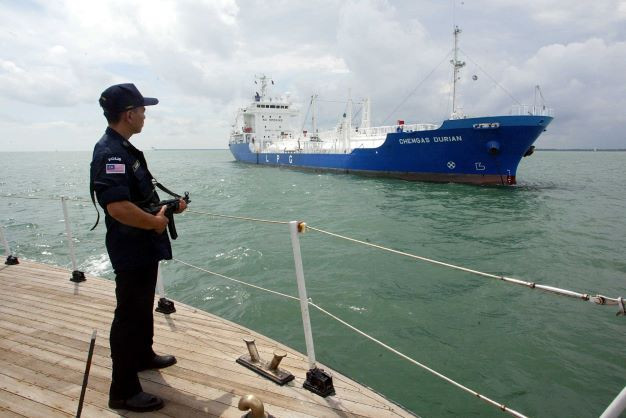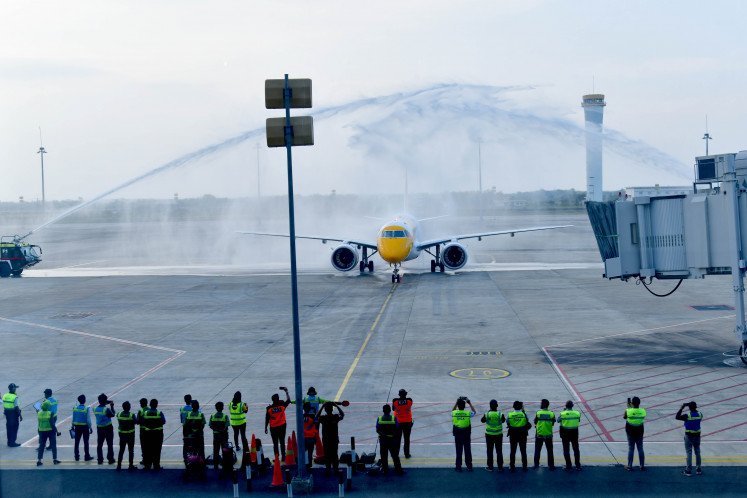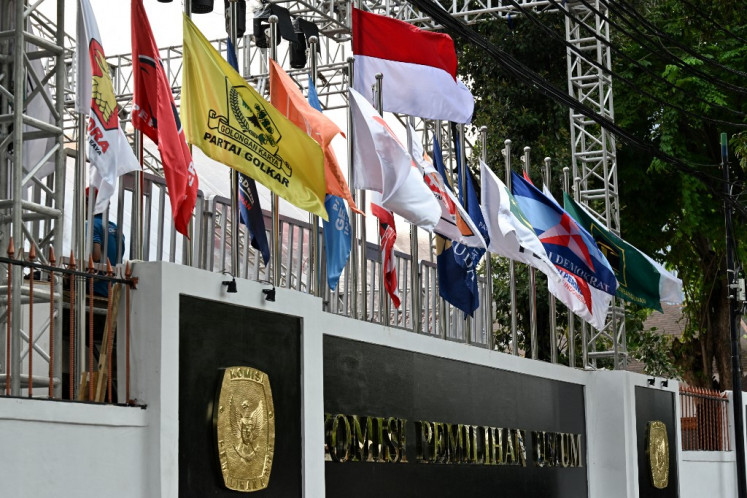Popular Reads
Top Results
Can't find what you're looking for?
View all search resultsPopular Reads
Top Results
Can't find what you're looking for?
View all search resultsProtecting the Strait of Malacca: Too little too late?
According to the Marine Department of Malaysia, the Strait of Malacca is traversed by more than 70, 000 vessels each year.
Change text size
Gift Premium Articles
to Anyone
S
outheast Asia is home to two of the busiest straits in the world – the straits of Malacca and Singapore. The closure of this important shipping way would violate international law affecting the well-being of the global economy.
Although Singapore is in support of the pact, Malaysia and Indonesia on the other hand have expressed uneasiness on the establishment of a tripartite security alliance between Australia, the United Kingdom and the United States named AUKUS. This trilateral security pact announced in September 2021 would enable Australia to construct at least eight nuclear-powered submarines through this trilateral security partnership.
Australia has reiterated that the development of its nuclear-powered submarines program is not in contravention of international law. Developing nuclear-powered submarines is not in any way similar to developing nuclear weapons. Australia is projected to possess its first nuclear-powered submarine by the year 2040.
Given the fact that the unimpeded transit passage applies to the straits of Malacca and Singapore, Malaysia and Indonesia have reason to get all worked up.
International law places the obligation on Malaysia and Indonesia to allow its territorial sea within the straits of Malacca and Singapore to be open for international navigation, including to that of nuclear-powered vessels and submarines.
Would such navigation be detrimental to these nations’ security? Would this in any way adversely affect the sensitive marine environment of the straits of Malacca and Singapore?
The straits of Malacca and Singapore route is the shortest maritime passageway connecting oil exporter nations in West Asia to their East Asian consumers. In 2017, the Singapore-based Nippon Maritime Center reported that one vessel left or entered the straits of Malacca and Singapore every six minutes.
An estimated 15 million barrels of oil pass the straits of Malacca and Singapore daily.
According to the World Shipping Council, two ports located along the straits of Malacca and Singapore are considered among the busiest in the world, namely the Port of Singapore and Port Klang. If for any reasons these straits are not made available for international navigation, shipping companies will have no other choice but to traverse through the Indonesian archipelagic straits of Lombok and Makassar, translating into higher shipping costs.
According to the Marine Department of Malaysia, the Strait of Malacca is traversed by more than 70,000 vessels each year. Out of this total number, the strait is, on average, navigated by 100 naval vessels each year, including that of nuclear-powered submarines flying Chinese, Indian and American flags, among others.
So far, there have been nine incidents of sunken nuclear submarines worldwide, either by accident or scuttling. These sunken nuclear submarines may pose a threat to the marine environment leaking radiation into the sea.
Although none of the accidents took place in the waters of the straits of Malacca and Singapore, a recent incident involving an American nuclear-powered submarine that collided with an undersea mountain in the South China Sea has raised concerns of a potential maritime accident or worse, a nuclear meltdown.
As stated earlier, international law dictates that straits used for international navigation are subjected to the application of the unimpeded right of transit passage. States bordering straits may only take appropriate enforcement measures should passage of such vessels have caused or threaten to cause major damage to the marine environment of the straits.
In other words, states bordering straits do not have the right to impede navigation of foreign vessels through their territorial waters.
There are conflicting views with regard to whether or not vessels carrying hazardous nuclear substances may be allowed to sail through territorial seas belonging to another state. Proponents of freedom of navigation argue that coastal states, particularly those that border straits used for international navigation, do not possess the right to impede the right of transit passage.
The closure of straits used for international navigation to vessels carrying hazardous nuclear substances would violate the spirit of the United Nations Convention on the Law of the Sea (UNCLOS) 1982.
Nevertheless, it could also be argued that the UNCLOS puts an obligation on each member state to protect and preserve the marine environment. Hence, navigation of vessels carrying hazardous nuclear substances, such as that of nuclear-powered submarines, should be subjected to stricter requirements, to further protect the interests of the coastal states concerned.
With AUKUS, Australia would soon possess nuclear-powered submarines that would roam these waters.
Any maritime accidents involving nuclear-powered submarines would entail irreversible damage to the marine environment.
It is to be remembered that the UNCLOS was drafted back in the 1970s. There were not as many nuclear-powered submarines back then as there are today.
Consequently, in situations involving vessels carrying hazardous nuclear substances, both user and states bordering straits should continuously negotiate to come up with a win-win solution.
Should an unprecedented nuclear meltdown or maritime accident involving nuclear-powered submarines take place, it would then be too little too late to protect and preserve the sensitive marine environment of the straits of Malacca and Singapore and their surrounding areas.
Balancing navigational rights and protection of the marine environment – the choice is ours.
***
The writer is a senior lecturer at the School of Syariah and Law, Universiti Sains Islam Malaysia and a research fellow at the Australian National University Malaysia Institute, Canberra.










